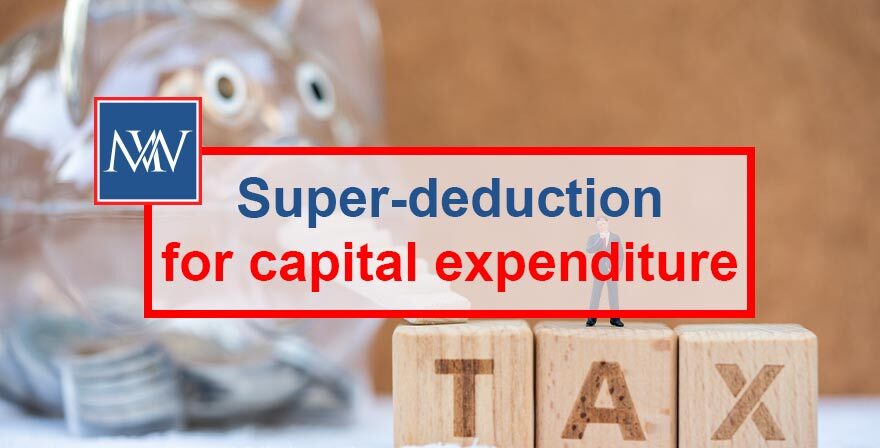
Super-deduction for capital expenditure
To encourage companies to invest, enhanced capital allowances are available for expenditure incurred within a limited two-year window. As an alternative to the annual investment allowance (AIA), companies will be able to benefit from either a super-deduction or a new first-year allowance, depending on whether the expenditure is on assets that would qualify for main rate capital allowance or for special rate capital allowances.
Super-deduction
The super-deduction will allow companies to claim capital allowances of 130% for expenditure on new assets that would otherwise qualify for main rate (18%) plant and machinery capital allowances where the expenditure is incurred in the period from 1 April 2021 to 31 March 2023. The super-deduction does not apply where the contract for the asset was entered into prior to 3 March 2021 (Budget Day), even if the expenditure is incurred in the qualifying two-year period. Plant and machinery which is purchased under Hire Purchase or similar contracts must meet additional conditions in order to qualify for the super-deduction.
Where an accounting period straddles 1 April 2023, the rate of deduction is apportioned based on the number of days in the accounting period falling before 1 April 2023 and the number of days in the accounting period falling on or after this date.
The effect of the super-deduction is that for every £100 of expenditure on qualifying assets in the qualifying period, the company can claim capital allowances of £130 when computing taxable profits. This gives an effective rate of relief of 24.7% (130% x 19%).
Where an asset which has benefited from the super-deduction has been sold, disposal receipts are treated as balancing charges rather than being taken to pools. A factor of 1.3 is applied to the disposal receipt when calculating the balancing charge.
Companies wishing to benefit from the super-deduction should plan the timing of investments in qualifying assets so that the expenditure is incurred in the qualifying two-year period. Where significant investment is planned after 1 April 2023, consideration could be given to accelerating the investment to benefit from the super-deduction.
A company does not have to claim the super-deduction. Where the company is loss-making or profits are low, it may wish to claim writing down allowances instead or tailor the claim to reduce the profit to nil. Likewise, if the plan is to sell the asset in a few years, it may be preferable to claim writing down allowances rather than suffer the balancing charge on the disposal.
New first-year allowance
A new first-year allowance of 50% is available for expenditure on most new plant and machinery that would otherwise qualify for special rate writing down allowances of 6% where the expenditure is incurred in the period 1 April 2021 to 31 March 2023. As with the super-deduction, it is only available to companies.
This is an alternative to the annual investment allowance, which gives a deduction of 100%. However, the first-year allowance may be beneficial where the AIA limit has already been reached.
For more information , Book a Free Consultation
Need Accountancy Support?
For information on bespoke training, or if you have any other questions for Makesworth Accountant, please fill in your details below




















 148
148